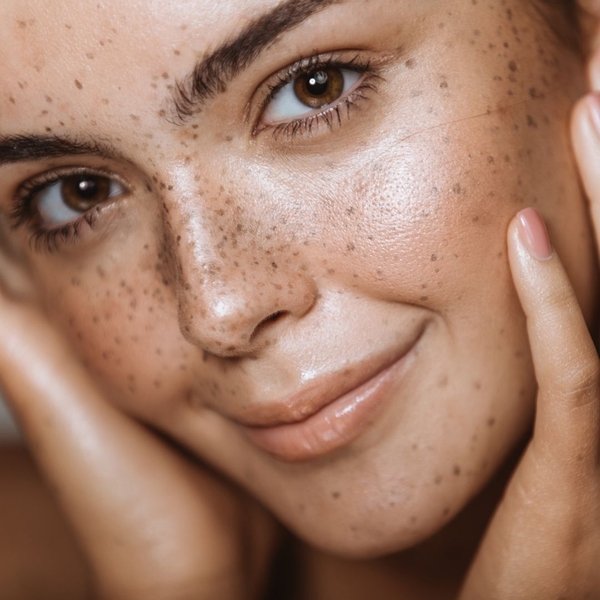BLOG

Let's Talk Skin...
Thursday 25th May 2023
Skin Types and their Characteristics
The skin is the largest organ of the human body, serving as a protective barrier between the internal organs and the external environment. It has numerous functions, including protection, sensation, regulation of temperature, and synthesis of vitamin D, performing a variety of crucial functions that are essential for the overall well-being of the body.
Different individuals have varying skin types, each with its unique characteristics and needs. The four main skin types are listed below:
Normal Skin - Normal skin is well-balanced, with an even texture and no visible signs of oil or dryness. It is not too oily or too dry and has a healthy glow. It is generally not prone to frequent breakouts or excessive oiliness. It requires minimal maintenance and is less susceptible to sensitivity or irritation.
Characteristics of someone with a normal skin may include:
- A smooth texture
- Small pores
- A healthy glow
Dry Skin - Dry skin lacks oil and moisture, which makes it feel tight, flaky, and itchy. It can be caused by genetics, aging, environmental factors, or a lack of proper skincare. It requires regular moisturization and hydration to maintain its suppleness and prevent discomfort.
Characteristics of someone with dry skin may include:
- A feeling of tightness or discomfort after washing their face
- Rough, flaky, or scaly skin
- A dull complexion
- Visible lines or cracks
- Itching, irritation, or redness
Oily Skin - Oily skin is characterised by overactive sebaceous glands, which produce an excess amount of sebum, resulting in a shiny, greasy appearance. The skin pores are enlarged and can often lead to acne. It is often caused by genetics, hormones, or environmental factors. Oily skin tends to age slower than other skin types, as the natural oils provide some level of moisture and hydration.
Characteristics of someone with oily skin may include:
- A shiny, greasy appearance
- Large or visible pores
- Blackheads, pimples, or other blemishes
- Skin that feels slick to the touch
Combination Skin - Combination skin has both oily and dry areas. Typically, the T-zone (forehead, nose, and chin) is oily, with larger pores and a tendency for breakouts, while the cheeks and other areas may be drier. Combination skin is common and can be caused by genetics, hormonal changes, or a lack of proper skincare.
Characteristics of someone with combination skin may include:
- An oily T-zone (forehead, nose, and chin)
- Dry or normal skin on the cheeks
- Large or visible pores on the T-zone
- Blackheads, pimples, or other blemishes on the T-zone
Skin types are not fixed and can change due to factors such as age, hormones, climate, and skincare habits. Understanding your skin type can help guide you in choosing appropriate skincare products and routines to maintain a healthy and balanced complexion.
Skin Conditions
Skin conditions are different from skin types and can encompass a wide range of disorders that affect the appearance, texture, and overall health of the skin. These conditions can be temporary or chronic, mild or severe, and may vary in their causes and symptoms. Here are descriptions of a few common skin conditions:
Sensitive Skin - Sensitive skin is easily irritated by certain products, chemicals, or environmental factors. It may be caused by genetics, allergies, or a compromised skin barrier.
Characteristics of someone with sensitive skin may include:
- Redness, itching, or burning after using certain products
- Tightness, dryness, or flakiness
- Small bumps or rashes
- Fragile, thin skin that bruises easily
Dehydrated Skin - Dehydrated skin lacks water and feels tight, dull, and rough. It can be caused by environmental factors, such as cold or dry weather, as well as a lack of hydration or using harsh products.
Characteristics of someone with dehydrated skin may include:
- Tightness or discomfort after washing their face
- Dull, rough, or lacklustre skin
- Fine lines or wrinkles
- Itching or sensitivity
Ageing Skin - As we age, our skin loses elasticity, collagen, and moisture, which can lead to wrinkles, sagging, and age spots. Aging skin can be caused by genetics, sun exposure, environmental factors, and lifestyle choices.
Characteristics of someone with aging skin may include:
- Fine lines or wrinkles around the eyes, mouth, or forehead
- Sagging or drooping skin
- Age spots or dark patches
- A loss of elasticity or firmness in the skin.
The descriptions above provide a general overview of some but not all common skin conditions, but everyone’s experience is different. If you have concerns about your skin, it's always best to consult with a skincare therapist or healthcare professional for an accurate diagnosis and appropriate treatment.

